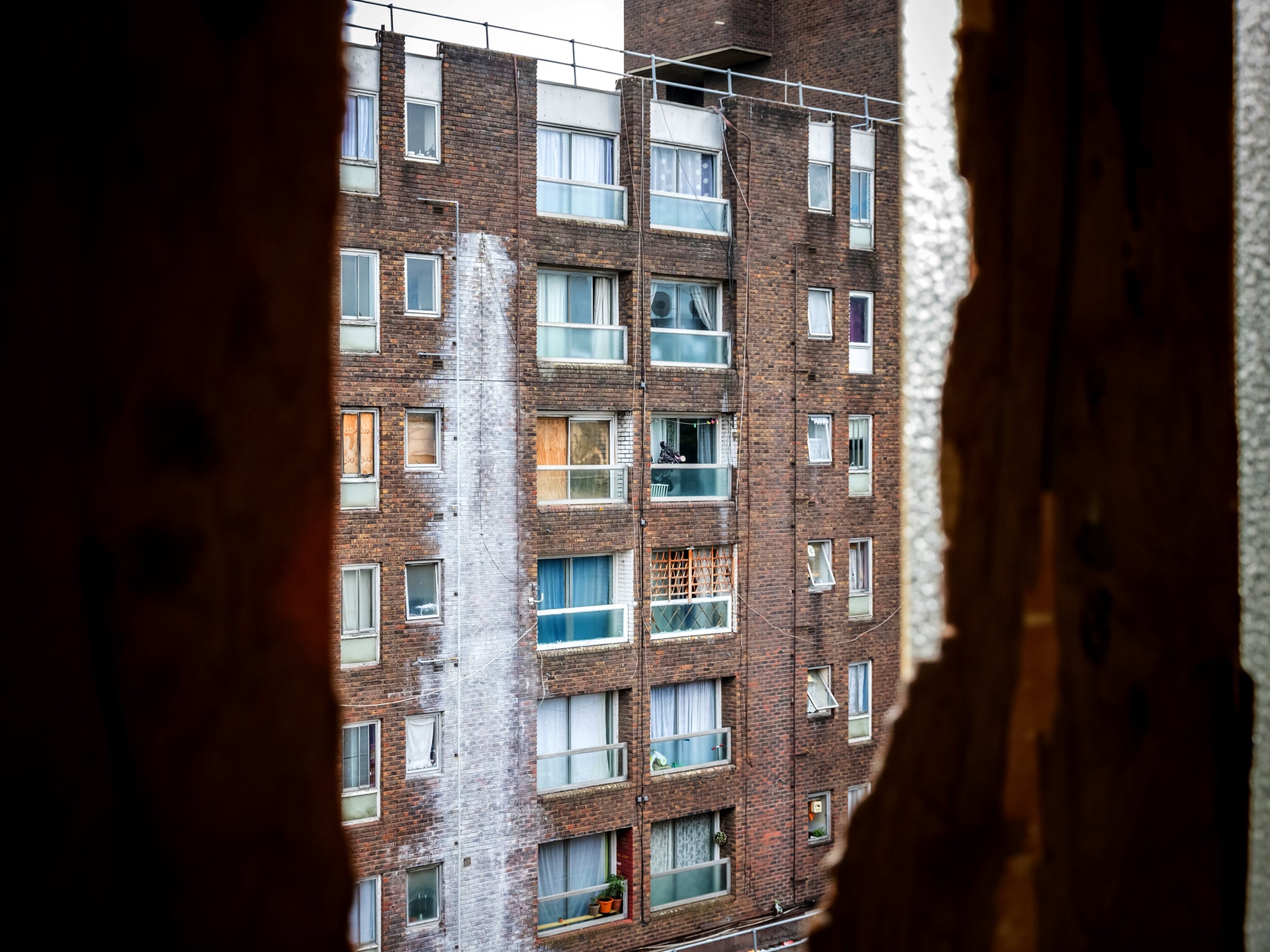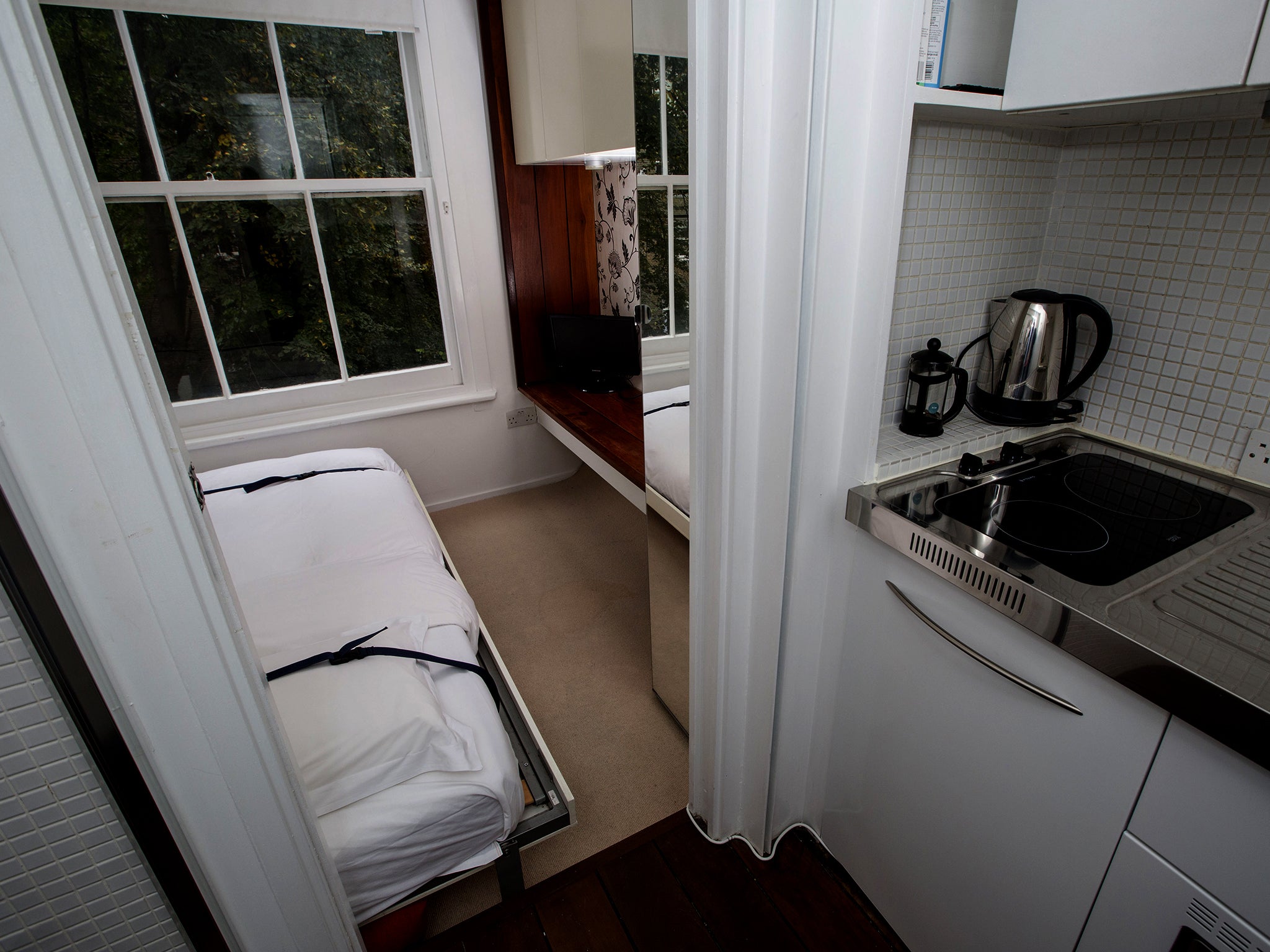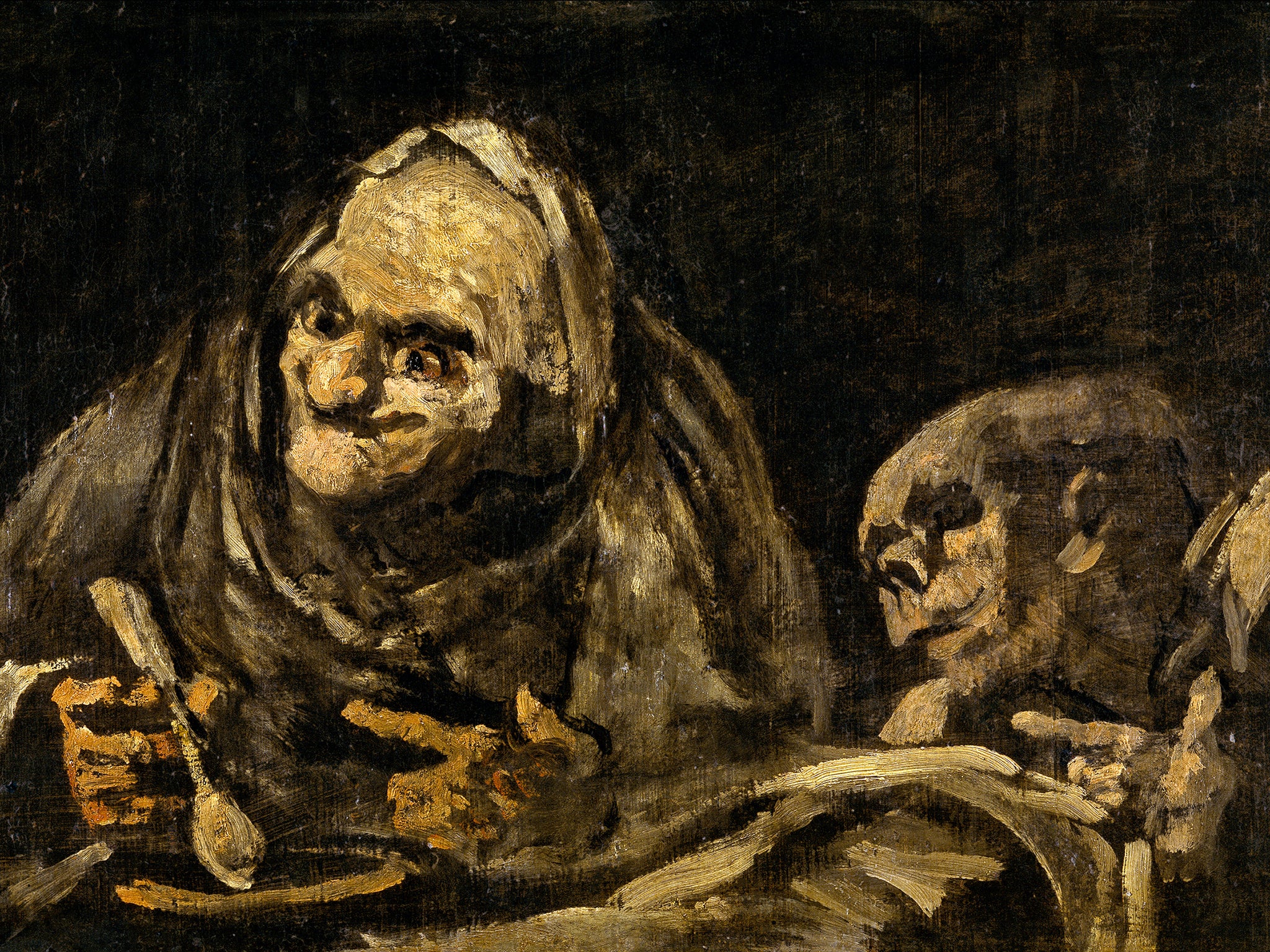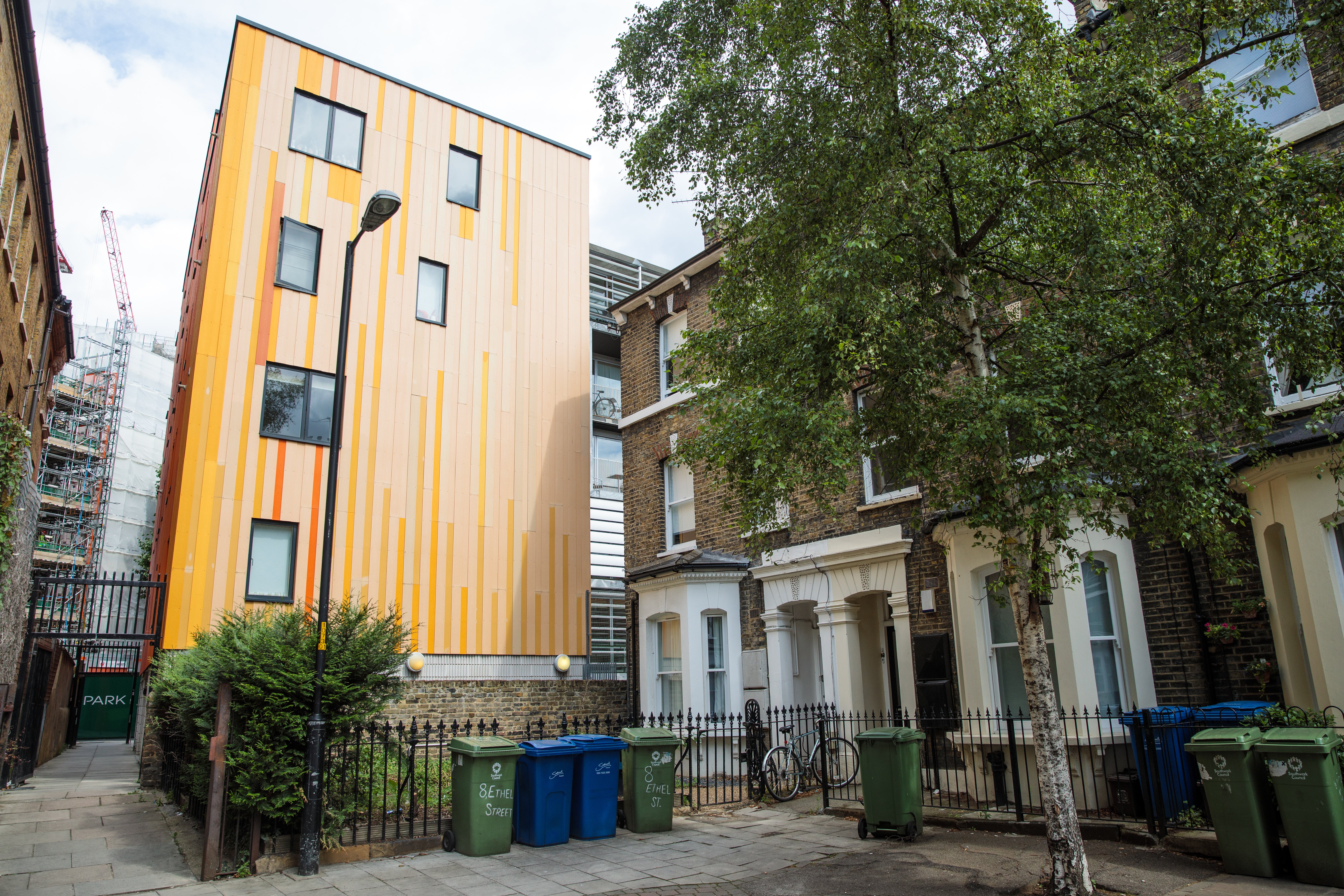‘Made for languishing, not living’: Lifting the curtain on Britain’s modern housing misery
While calling London’s housing situation a crisis may have become a truism, after years on the private rental circuit, Maria Albano can confidently claim the reality is much worse

Upon my permanent move to London in 2016, I was instantly swept away by the infernal carousel of British housing. Five years on, I am yet to be freed from its dizzying spin: my student and early adult years have been spent in overcrowded, yet prohibitively expensive, hubs of decay, none of them exempt from some kind of maintenance issue.
One political upheaval after another could do nothing to deflect my attention from more prosaic problems, whether these be an overflowing toilet, in-house thieves or a petty quarrel turned bloody. Today I can confidently claim that, while to call London’s housing situation a crisis may have become a truism, the actual situation is even more grim.
Most London flats are there less to be dwelled in than to cater for a modern life of transit; in fact, by being as inhospitable as they are, they reject all pursuits of permanence or personalisation. This owes to their primary function being not to provide a home to those who live inside, but to act as profit-making machines for landlords, or fronts for tax evasion and money laundering by foreign investors.
If you thought the Queen would be Britain’s biggest landowner, think again: the nomination goes to the ruler of Dubai, horse race aficionado Sheikh Mohammed, whose property empire in Britain, according to a Guardian report, appears to exceed 40,000 hectares. In the movie Wimbledon, we see a couple ride the London Eye and look out over the sprawling metropolis. “One day,” the man says, “none of this will be ours.” That day is today.

My first ever adult accommodation was on the top of a bunk bed wedged in an airless room, which less amoral owners had likely intended for the storing of domestic supplies, but that at the time lodged three flesh and bone girls, piled on top of each other like cattle. What was once the living room had also been divested of its former use and partitioned into three, jam-packed rooms, so that the muck produced by a dozen people with distinct and oft irreconcilable living habits would soil every crack and corner of the house. Having little in common with each other made communication hard and not seldom we’d resort to bellowing and barking to get our point across. Even though being the same before iniquity, rather than taking up arms against our common scourge, the landlord, a scavenging Napoleon walking on hind legs, we’d clash over our differences to little avail.
Five years on, I am yet to be freed from its dizzying spin: my student and early adult years have been spent in overcrowded, yet prohibitively expensive, hubs of decay, none of them exempt from some kind of maintenance issue
The road lying ahead held even more horrors. There’s the room in Dalston I rented for £500 a month. It overlooked Kingsland High Street but came with holes on both sides of the bed, baleful things with expectant mouths easing the mice’s way in. Months later, I still fancy them scuttling and writhing hideously whenever being alone in a quiet room. Then there’s the one from which my glasses mysteriously disappeared. Having at that point been a victim of domestic thievery multiple times already – I had been robbed of shampoo, food and once even a book of poetry (much good may it do them!) – I should have been savvier; but to exercise nonstop wakefulness in your own room can be trying.
I was living in an especially problematic flat when the oddest things of all happened. The boiler needing fixing as it would every few days or so. I poured the maintenance guy some tea and inveighed with him against the landlord’s ineptitude. I thought him sympathetic and can even remember him commenting with conviction that “the entire building was so wretched, the landlord should get a grip and burn it down”. It turned out – get ready for it – that the maintenance guy was the landlord himself, who had begged the agency to never reveal his identity to us tenants. If I can grant him one thing, it’s his excellent performance skills. Though if this isn’t a glaring admission of culpability, I don’t know what is.

Hence, when in my inbox a Spareroom ad glares sinister – “Is the rush for rooms starting?” – I can barely suppress a shiver. How well does the onomatopoeic “rush” illustrate the competition for minuscule hellholes between frantic hordes of hopefuls, all too ready to give up their privacy, savings and, on occasion, their health for the promise of better wages and a better lifestyle (ever met, I wonder?) in the city. All the while, buy-to-let landlords and duplicitous estate agents lounge on vast amounts of money they barely lifted a finger to earn.
Locked out of homeownership by prohibitive sale prices (not even the financial upheaval caused by lockdown could give the housing market a good shake), 20 per cent of Brits have no choice but to rent from a private landlord. As gory and grotesque as a Goya black painting, such is the reality of housing in Britain, and if it’s hard to imagine a service this poor in any other sector, it’s not so hard to appreciate how turning basic needs into commodities should result in obscenity.
Let’s forget momentarily what one has the right to expect from a home (roughly, health, wellbeing, and security) and how such a right is consistently violated, and focus instead on what one feels home to be. Having posed this question to a mix of people, I got all manner of responses, but in essence what home is for most is a space a little bit like an extension of oneself, a repository of personal history. We feel at peace being surrounded by our familiar objects, we tolerate dirt and disorder better when they are of our making, and if clutter is detestable when belonging to others, it is a treasure trove of memories when it belongs to us. Home is what makes journeys sweeter (and bad dates bearable), somewhere we feel relief, and never dread returning to.

We all need breaks from social roleplay, and home is our backstage for making no demands and offering no judgment. Really, there is nothing agreeable in being bound to share your space with somebody, unless with the opportunity to choose them carefully. No one appreciates being ambushed at home, whether what lies in wait is a specially persistent smell of fried fish, a wet toilet seat, or a neighbour’s inability to be alone with his thoughts coupled with a pair of powerful speakers. Just as I write this, my flatmate displays prodigious timing by making the walls in my room reverberate with what sounds like a veritable intestinal tour de force. And if this makes your skin crawl, so much the better: it will also serve to embolden your sense of how flat-sharing is not a business for the faint of heart.
In his Poetics of Space, French philosopher Gaston Bachelard evokes an oneiric home, tacitly imprinted on the rustic abode in Champagne from his childhood. Described by some as nostalgic and historically dated, Bachelard’s vision, conceived in his ant-sized Paris study, was, if anything, a proportionate reaction to the surge of 20th-century urbanism and mass-produced housing. City-dwellers, he complains in an oft-quoted passage, are reduced to live “in superimposed boxes”, in conditions so crammed that “on every side, intimate living flees”.

Like with Bachelard, the contemporary renter’s fantasy of home proceeds by hyperbole. What do you see when you dream of home? A corridor-style kitchen with no dining area? A windowless bedroom and cardboard walls? Do you see a single shrub and call it a garden? No, you don’t. What you see are large rooms and reading nooks and a fish pond outside. You see windows no less than four feet wide and six feet tall; they, all of them, open fully and seamlessly and fit to usher light aplenty. Indeed, light is never truant in the home of your imagination: every room is richly kindled by sumptuous chandeliers.
All forms of Swedish standardisation are rigorously banned: every single object, from the amphoras and clocks, to the chairs and pottery, the bed frames, and even the nibs, tells a story of its own, often in foreign tongues. When peered at long enough, the pockmarks on the sky-high walls, all of them either wallpapered, trimmed, or frescoed (never sterile, never white), become animated in the play of light, weaving miniature battles and epic feats. Whether it’s at the window-facing desk, situated in the highest room of the house, or in your rocking chair, in the shade of the front porch, the grassland is always less than a glance away. You gain contentment from identifying species of fern and knowing that the gates are locked.
Surely, what makes more sense than working this hard to turn London into a jam-packed dystopian metropolis is to cease handing out half of British land to sheiks and tycoons
When you get sick of recurring to fantasy alone, you spend hours designing your very own Pinterest “dream house” board, or browsing through Scottish geodesic domes and Brittany seaside manors on Airbnb. Airbnb allows you to temporarily flesh out the lifestyle you desire for a few dozen pounds a night. Two weeks ago, I rented a life at a rural cottage in Dorset. I spent four days in perfect bliss, pretending that mine was the fireplace I’d warm my feet by, mine the swing on which I'd paint my nails at leisure, mine the tabby cats dozing at the bottom of the bed. Pretending came easy, almost too easy. Back in my five-people flat for two, I wonder why the circumstances make it so hard for people to enjoy the same simple comforts on a regular basis, instead of having to play expensive make-believe whenever finances permit it.
A quarter of Londoners and one in six Britons don’t think they’ll ever afford a home, says a recent YouGov analysis. But, contrary to suggestions, those who can’t own property are hindered from doing so not by an innate disconnection from the need for stability or by indolence. Much more simply, they cannot do so because they don’t earn enough, or their work is unstable. Most of them were not born into wealthy families, hence their connection to capital isn’t simplified by blood relations. So many Londoners now are hindered from raising enough for a deposit by the simple fact that more than half their wage goes into rent each month.
We are told that in order to tackle the housing crisis, more houses need building. But building more of the dehumanising boxes classified under the misleadingly chic label of “modern housing” is a thought that anyone without a financial interest will most likely recoil from. We emphatically do not need more houses that don’t make people happy to be there, or that come coated in inflammable cladding or are built in the very spots which maximise public opposition – see the Sky Pool in Nine Elms that was unveiled last week, yet more all too visible proof of mayor Sadiq Khan’s inability to read a room. And why on earth should we want more houses if, as has happened so far, tens of thousands of them will end up simply being sucked out of the residential supply by the short-term let market, of which Airbnb is at the forefront?

The notion that even another single vertical aberration should be given the light of day when most properties in Kensington, Chelsea and Westminster stand empty, forming the perfect backdrop to a post-apocalyptic action flick, is simply bizarre. Surely what makes more sense than working this hard-to-turn London into a jam-packed dystopian metropolis is to cease handing out half of British land to sheiks and tycoons to the disadvantage of pretty much everyone else?
Martin Heidegger, the German philosopher and author, like Bachelard, of a nostalgic eulogy to the peasant farmhouse, defined dwelling as the state of being at one’s natural state, and claimed that “we only need to build in order to dwell”. What is built today has nothing natural or human about it; it is not made to live, but to languish in. While house prices surge at the fastest pace for almost seven years, council-owned affordable housing is on a starvation ratio, and it is hard not to succumb to the impression that, in spite of what is guaranteed by international law, our worth is conditional on what we earn rather than on what we are. If this is what living a modern life holds, then, by all means, bring me back to the Romantic house-and-garden, to the medieval peasant hut. Though I’m afraid that, in the long term, there’s only so much daydreaming to do before reality becomes too dark.






Join our commenting forum
Join thought-provoking conversations, follow other Independent readers and see their replies
Comments